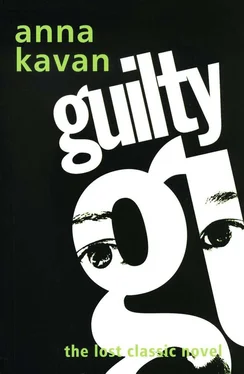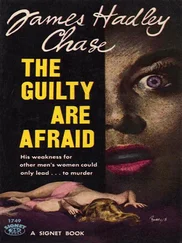I was most disconcerted; but not too much so to notice that he flushed slightly as he spoke and afterwards fidgeted awkwardly with his cup, seeming to wish he hadn’t expressed himself so openly and emphatically before a critical — possibly even a hostile — listener.
I’d made no great effort, I had to admit, to overcome his distrust. But it caused me, all the same, to be overwhelmed once more by that frightening sense of being an outlaw, vulnerable beyond others, everyone’s hand against me. And though the feeling was momentary, it left an aftermath of depression; and, as soon as was decently possible, I excused myself and prepared to leave. Jaggers came to the door with me, keeping me there as before; this time he did succeed in saying something, though with a curious shyness, looking aside, as if speaking to someone else. ‘The greatest courage isn’t always found on the battlefield, you know.’ Observing him then, with his grizzled head and baggy grey tweeds, the gown he’d forgotten to take off hanging behind him like the dishevelled black wings of some great moulting bird, I dimly perceived that this mild, undistinguished, unprepossessing man knew a good deal about courage himself at first hand — which disconcerted me once again.
Kind and friendly as he had been, he’d somehow put me on the defensive. I felt that he criticized my attitude towards my father and probably regretted having helped me reveal it to him. So, though he’d pressed me to drop in for a chat, I never did, only seeing him in public till the term was almost at an end.
Prefects, naturally, were expected to set an example by being punctually in their places in Big Hall for the evening assembly. Jaggers’s house where I lived was further than the rest from the main building, and, as I never started till the bell was ringing, I always had a last-minute dash across the chess-garden to be on time. No flowers grew here among the rows of tall evergreens, immensely old and cunningly clipped in the shapes of chessmen, by which I’d been so impressed when I first arrived. Even now, after years have passed, their weird aspect, hard and solid-looking as if carved out of malachite, is the thing I remember most clearly about the school. Only one man in the whole country was expert enough to give them their yearly trim, and his family had held the hereditary office since time immemorial. When the sun was high, these arborial curiosities could resemble a grotesque company of medieval giants, with their attendant dwarf-shadows. Or an army of green invaders from an alien planet sometimes seemed to be marching in ordered formation across the lawn, where only masters and prefects were allowed to tread. All their transformations, however, as my first glimpse had showed me, possessed the common quality of malice, which infected the air around them, as if, throughout the centuries of their long lives, they’d been accumulating contempt and bitterness for their human creators, which found expression in this emanation. As a new boy, looking out of the dormitory, I used to tremble at the sight of these spectral shapes, all looking towards me. Obviously, they knew all my secrets; they despised me and regarded me with suspicion, always wanting to trick and harm me, enveloping me in their malevolent influence. Later on, as I grew more sure of myself, the trees bothered me less. But I always thought of them as personifying derision and hostility; and I still felt an unacknowledged antipathy towards them.
On the summer’s day I’m describing, my mind was occupied solely by the need for haste, as I was even later than usual. Swinging around one of the great green towers at full speed, not expecting to meet anyone here, where all sounds were muffled by the soft turf and dense compact foliage with its strange medicinal smell, I collided with someone I almost sent flying before I could pull myself up. Grasping his arms to steady him, I saw that it was Jaggers and gasped a breathless, ‘Sorry, sir’, inwardly cursing the unlucky delay. At this moment the bell ceased to ring. In the ominous hush I became aware of my victim’s silence, then of his grey shocked face, which made me forget I was late and start asking anxious questions, afraid he’d been injured somehow by our collision. I felt, I remember, a curious pang of foreboding.
Waving a sheet of paper he held in his hand, he waved away my inquiries and instead put a question of his own — a question so extraordinary that I could scarcely believe my ears, hearing him ask the sailing date of the ship on which my father had first intended to leave the country. Amazed, I told him it should have sailed over a week ago. Whereupon he nodded slowly, a look of extreme anguish overspreading his face, and muttering, ‘Yes, I thought so’, in the way of a man overwhelmed by guilt, so that he might have been saying, ‘Yes, it’s all my fault.’
Though I had no idea what he meant, and was completely bewildered by the whole situation, for a moment he seemed to project his guilt on to me; as in a nightmare flashback I suddenly recalled with horror the guilty child whose imagination had once assumed responsibility for his father’s fate. ‘He’s too late now,’ I heard Jaggers murmur; but paid no attention to the words, too perturbed by his condition, convinced that he was wandering, temporarily out of his mind.
I tried to lead him towards the entrance of the main building. But he resisted, violently threw off my hand and, thrusting upon me the page he carried, covered his face with his hands and to my consternation began shaking from head to foot as if silently sobbing. I was thankful to catch sight of one of the gardeners who must have been working late, to whom I shouted, telling him to get help at once.
I’d noticed a seat at the edge of the topiarian chessboard and, thinking Jaggers would rest more comfortably there, tried to take his arm in order to lead him in that direction. But again he flung off my hand, which had barely touched his sleeve, as though it had been a repulsive snake. There was such violent loathing in this rejection that — though I knew how absurd it was to take offence at the actions of anyone in his state — I couldn’t help feeling hurt and made no further attempt to come near him.
He continued to stand there, his face hidden, apparently oblivious of me; and I presently glanced down automatically at the paper he’d forced me to hold. It was badly crumpled, the print blurred and almost illegible; I stared at it for some moments before recognizing it as a single news-sheet, roughly printed by some emergency process, which gave the news of the first of the sequence of big explosions which, in such a short time, laid waste our principal cities and came to be known as the Eight Days War.
In the confusion which followed immediately, a triviality like Jaggers’s breakdown passed unnoticed. He simply disappeared, as so many people inexplicably appeared or vanished at this time, and was forgotten. Everything was chaotic, for the transport, postal and other services were at once out of action. It was impossible for us to be sent home. And, in any case, most parents presumably preferred to know that their children were in a place of comparative safety, far from any important centre. This remoteness was our most valuable asset, of great value, not only in ensuring our immunity from attack but because it permitted us to go on functioning as a closed, self-sufficient community — as we were able to do with our large home farm — without being immediately overrun by hordes of demoralized homeless people from the big towns.
These starving refugees from the shattered cities, many of them sick or with minds unhinged by suffering, flooding over the countryside in every direction, in lawless, leaderless, tragic mobs, were a problem as grave and were as much a cause of our country’s final capitulation, as the actual bombs. Fortunately for us, they took some time to reach our remote peninsula, and, indeed, only a trickle ever survived the journey.
Читать дальше












